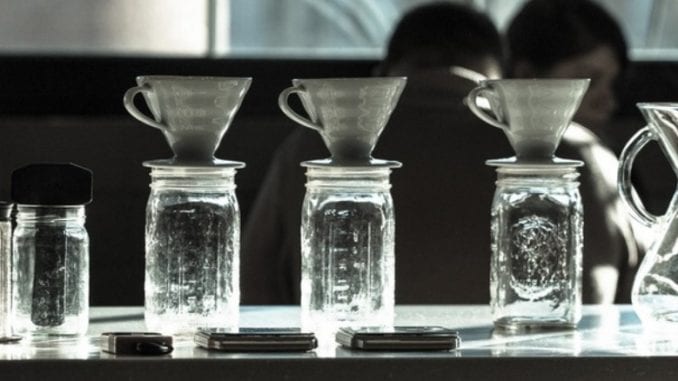
We celebrate the winners of coffee competitions, but what should we feel when we lose? Jessica Barg talks candidly about the pain and hope associated with losing at competition.
BY JESSICA BARG
SPECIAL TO BARISTA MAGAZINE
At some point in our lives—and more likely, at many points—we must endure the pain of losing. When we reflect on these losses, it’s often difficult to overcome and move past the grief that fills the void our losses create. To make things even more difficult, there are many types of loss. Each is incomparable to the next and comes with much different stakes, but each is a loss nonetheless.
After my own recent brush with the adversity of loss, I felt prompted to explore the importance of loss and how it relates to coffee in more depth.
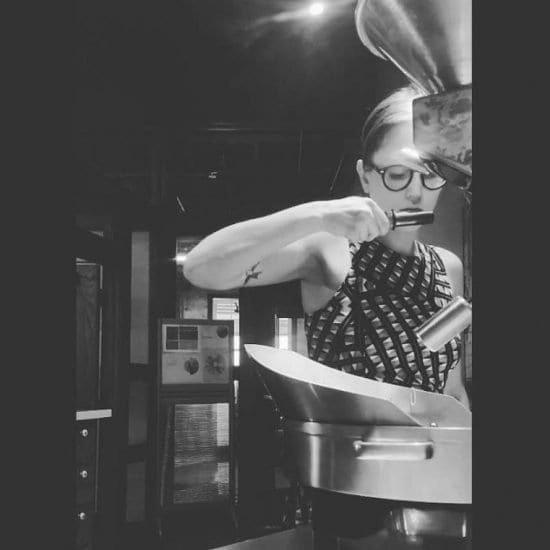
Feeling inspired by the farmers who take risks every day to push the envelope forward, this year I decided to take a risk and compete for the first time in the United States Brewers Cup qualifying round in Knoxville, Tenn. As someone who suffers from acute anxiety, it was a difficult decision to put myself out there, but was something I felt was important and necessary for me to do—although perhaps not for the reasons that I anticipated when I signed up. It gave me a connection to coffee farmers that I didn’t have before, even as someone who writes copy about coffee farms and does a lot of research in order to do so. After all, don’t the farmers who meticulously grow and process the coffees that we love endure their own anxieties in the face of things such as climate change, resource scarcity, natural disasters, and the like? Surely they do, and at much higher stakes than a Brewers Cup competition. My potential loss is dwarfed in comparison to theirs.
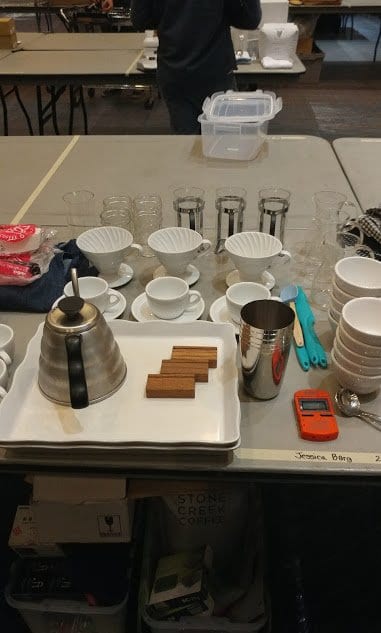
In fact, the first day I arrived at the convention center where the competition was being hosted, I overheard someone say that the competitions were, “high stress, low stakes.” This seems poignant considering that farmers stand to lose much more when something goes wrong with their crop, but seemed more like a joke at the time, as I’m sure it was intended to be. But just as loss teaches us, so does the introspection that it prompts—and for me, this introspection was just what I needed.
When I first found out that I didn’t qualify for nationals, I felt a rush of emotions. I felt devastated that I had put so much effort into something that felt as if it wasn’t paying off with any kind of tangible return. Then I was in denial that it really happened—heartbroken that I wasn’t chosen. I was also angry and disappointed in myself for not being better, or trying harder. However, I mostly felt sad that something I wanted to happen did not—I wanted to share my love for coffee on a national stage, and at least this year, that’s not happening. I was at a loss—but not a loser. And the truth is, these emotions were all important for me to experience in order to grow.
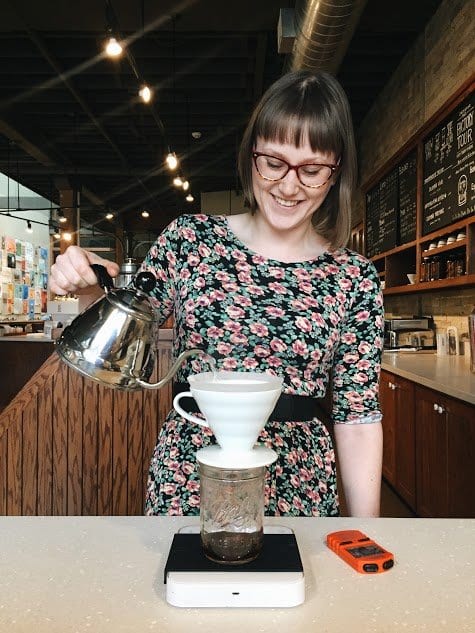
But what I did not feel is jealousy, and to me, this is truly exemplary of the community that coffee creates. I did not feel jealously because my peers deserve to be rewarded for all their hard work. They are not only incredible brewers, but they are also thoughtful, caring, insightful individuals who I was able to meet and dialogue with in a way that I would have never been able to if I hadn’t competed. For this exchange, I am eternally grateful. I am proud to be in a craft that inspires such hard work and determination. I am thankful for and inspired by all of the people who are constantly striving and pushing the envelope to be better. I am humbled by the farmers who work so hard and risk so much to grow and produce the coffee that makes our jobs possible. When you work in coffee, your cup is neither half full nor half empty—it is overflowing. My cup is overflowing, and for this I am glad.
‘Losing’ a competition does not mean that we are bad baristas, just like having a crop fail does not mean a farmer is a bad farmer. What it does mean is that tomorrow, we can pick ourselves up by the bootstraps and try again—but this time, smarter. Some things in life are beyond our control, and what is within it, we can change. Even when shrouded in the darkness that loss casts upon us, with the pain of loss as our motivator, we must pick ourselves up and use the fuel that is pain to reignite our passion and help us move forward, not so as to delay our grief, but to overcome it. Together we are better, but we can only be better together if we continually strive to be better ourselves.
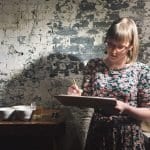 ABOUT THE AUTHOR
ABOUT THE AUTHOR
Jessica Barg is a writer, food blogger, and the Coffee Quality Specialist for Stone Creek Coffee in Milwaukee, Wis. At work, she most enjoys profile roasting coffees and hosting weekly staff food cuppings.

